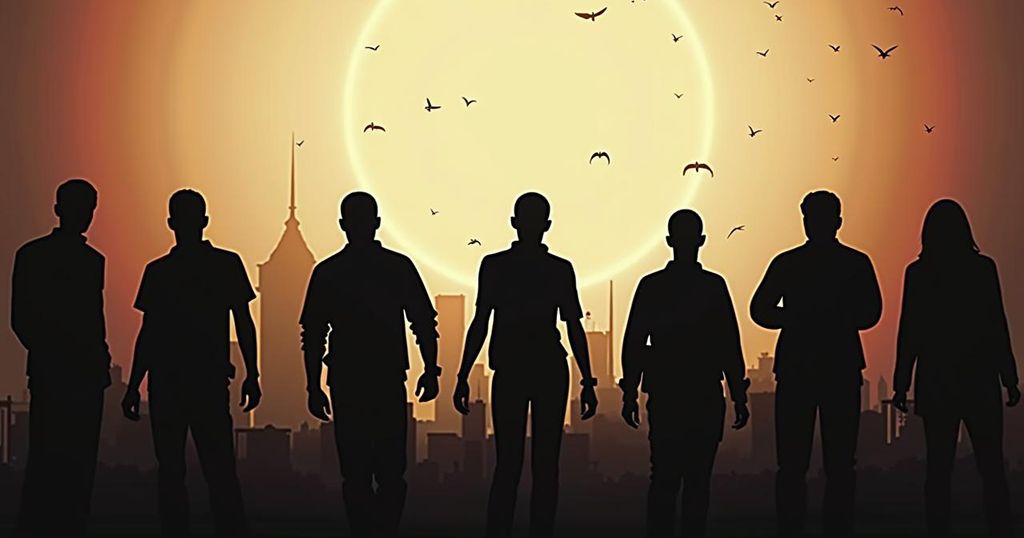Azerbaijan’s human rights record is under scrutiny ahead of the UN climate talks it is set to host in November. Human rights organizations report an escalation in crackdowns on dissent and civil society activists, prompting U.S. lawmakers to urge action for political prisoner releases. Concerns are raised that political repression may undermine grassroots involvement in climate negotiations. Azerbaijan’s embassy rejects these claims, framing them as misinformation, while the country continues to rely heavily on fossil fuel production despite international calls for a shift towards renewable energy sources.
As Azerbaijan prepares to host the upcoming United Nations climate talks in November, its human rights record faces severe scrutiny from activists and lawmakers. Reports from Human Rights Watch and Freedom Now indicate a marked increase in the government’s suppression of dissent, targeting civil society groups and particularly ethnic Armenians. This scrutiny intensified following the arrest of Anar Mammadli, a prominent human rights advocate who co-founded a climate justice organization. A coalition of U.S. lawmakers is urging Secretary of State Antony Blinken to advocate for the release of political prisoners in Azerbaijan, emphasizing the country’s human rights violations against critics and ethnic minorities following an ethnic cleansing event in Nagorno-Karabakh the previous year. The lawmakers highlighted findings from a State Department report that documented significant human rights concerns, including arbitrary detentions and unlawful killings. They are leveraging the COP29 climate negotiations as an opportunity to improve energy security for nations like Armenia and to mitigate their reliance on Russian gas. Myrto Tilianaki from Human Rights Watch raised alarm regarding the stifling of civic space, stating, “When civic space is actively shut down, the voices of those most affected by the climate crisis are at risk of being excluded from the negotiations.” The Azerbaijani embassy in Washington dismissed these claims, arguing that the actions taken against activists are legitimate and part of due legal processes, labeling the accusations as an orchestrated campaign of disinformation. The reports claim that recent arrests of activists were motivated by laws targeting non-governmental organizations (NGOs). Many faced charges of smuggling or illegal entrepreneurship, and the government tactics mirror longstanding abusive practices designed to quash free speech and association. After Russia obstructed EU countries’ bids, Azerbaijan was selected to host the climate talks, raising questions about the country’s commitment to climate goals given its heavy reliance on fossil fuels, which significantly fund its economy. Despite global calls for a transition away from fossil fuels—summarized during last year’s climate conference—Azerbaijan maintains that it can meet climate targets while continuing oil and gas production. President Ilham Aliyev defended the country’s natural resources by stating, “I have always said that having oil and gas deposits is not our fault. It’s a gift from God,” emphasizing the need for effective management of those resources to benefit the populace. One notable case involves economist Gubad Ibadoghlu, who faces severe accusations relating to currency counterfeiting and extremism. His insights regarding the mismanagement of oil revenues have categorically opposed government narratives about the benefits of these reserves to the general populace, placing him at significant risk of a lengthy prison sentence should he be convicted.
Azerbaijan’s selection to host the UN climate talks has drawn attention due to its troubled history regarding human rights, particularly in relation to the treatment of civil society and ethnic minorities. The country has been criticized for a documented pattern of oppressive actions against activists and dissenting voices, which has been highlighted by several international human rights organizations. The timing of these concerns is pivotal as Azerbaijan prepares to showcase its image on a global stage amidst allegations of increased repression, particularly against those advocating for climate justice and political reform.
In conclusion, Azerbaijan is facing mounting criticism for its human rights violations as it approaches its role in hosting the UN climate talks. The allegations of state repression against activists, particularly those involved with environmental causes, pose significant risks to the integrity of the discussions surrounding climate policy. U.S. lawmakers and international organizations have called for urgent action to address these human rights issues, emphasizing that the exclusion of affected communities could compromise the efficacy of climate negotiations. Thus, Azerbaijan’s upcoming role could serve as both a platform for environmental dialogue and a litmus test for its commitment to human rights and democratic governance.
Original Source: www.wprl.org





